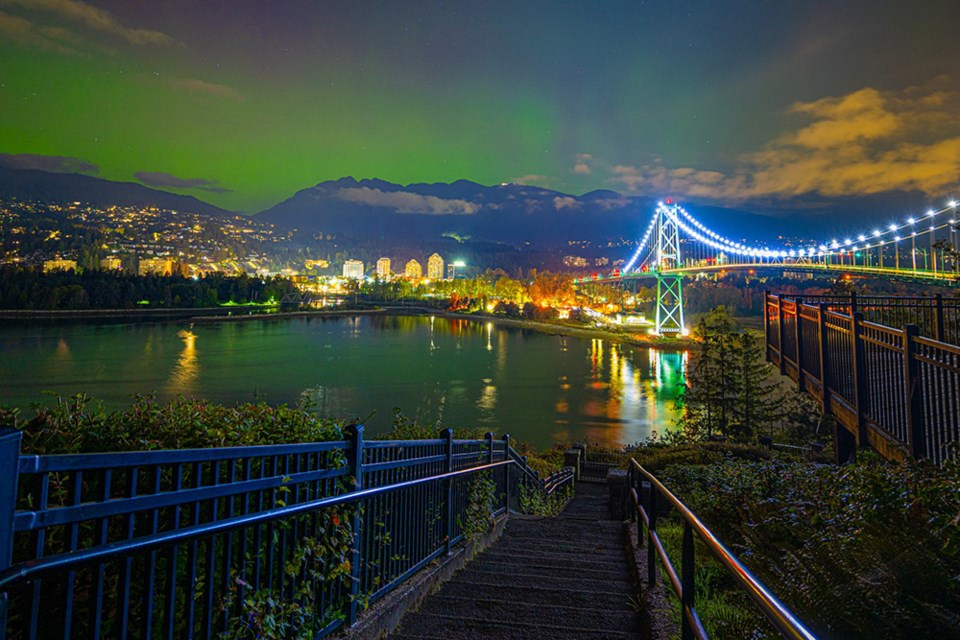Another publication, which shall remain nameless, has gathered an immense amount of information and produced a “data-driven ranking” that concluded North Vancouver and West Vancouver are the two most livable cities among 448 it studied in Canada.
I could have saved them time and trouble. They just needed to ask.
Its criteria are a snug fit with the North Shore municipalities I know: 10 categories and 50 variables that, face it, define how life here is difficult to beat (climate, community, safety, amenities being strong indicators) – with one criterion’s exception, of course, that of housing availability at an affordable price.
I am a late-coming arrival to the North Shore, nearly four years ago now, and I immediately noticed the old-timers have a tendency to introduce themselves by how long they’ve lived here or, if they sense you’re not a newbie, which schools they attended. It’s an affectionate way of demonstrating their attachment and a gesture of entirely understandable pride. I feel inferior that I can only count my time here in terms of garbage cycles or atmospheric rivers.
In moving here, I could sense the North Shore as the best of both worlds, offering its own identity while preserving access (at arm’s length) to Vancouver’s ample attractiveness. The differences I could discern arose in Vancouver’s casual quality to its upkeep, to the harsher street life, and to a surprising number of big-city ailments for such a small one. In hindsight, noting its imminent overbuild of its so-named Broadway Plan, the move seems prescient.
The access to nature here is extraordinary and privileged for an urban environment – wildlife use my backyard as a path a few times a year, and I can’t get enough of the hummingbirds – and the abundant canopy cools the summer and cloisters our homes. With that stunning scenery over the ocean comes some humility about your station in it. It’s made clearer when a bear nonchalantly dismantles your best effort to shelter trash.
With North Vancouver one senses the growth is not sprouting problems as it goes, while West Vancouver is less about pursuing population than about retaining its serenity. Both communities’ directions are tough on business due to the underlying expense of life here, and because of that we depend far too unhealthily on workers from surrounding centres.
The city rankings noted both North Shore communities have relatively low likelihood of crime, well below the national average, and no doubt that safety breeds an informality of the streets, the nodding of heads or greetings on the paths.
The sense of community pervades, seen and heard in recreation centres and in the coffee shops, and even those I’ve overheard doing business over caffeine do so at a pace that hardly presses the system. In other cities I’ve lived, the coffee shop has much more of a boardroom than a rec room feel.
Notable, too, are the depth of letters to the editor of this publication – they ooze of dedication and of detailed observation, a sign of pride and the objective of well-being.
The purpose of these rankings is to take a snapshot of today. If they were to project and speculate, they would identify some clear challenges. The principal weakness for the two municipalities in the gathered data has much to do with issues of affordability, and it doesn’t take much research to conclude the sustainability of the standard of living is far from assured. This ought to worry us.
This challenge is particularly true of West Vancouver, where the tax base lacks the crucial industrial ingredient. The infrastructure traipsing up the hill is the most expensive I’ve examined, and the construction in North Vancouver is a step ahead of the amenities necessary to support it. We are going to be walloped soon for a wastewater treatment plant, as we know.
We need mass transit, but it is decades away. The Blue Bus is clean and on time, and even though it is galling to watch people ask for a free lift then get on their smartphones, offers an efficient way to travel the North Shore and cross the bridges.
About those bridges: I was warned, even consoled, about how they would frustrate and immobilize. We all pay some price for life’s advantages, and I’ve concluded I paid enough of a price by not living here in the first place.
Kirk LaPointe is a West Vancouver columnist with an extensive journalism background. His column appears biweekly in the North Shore News.





